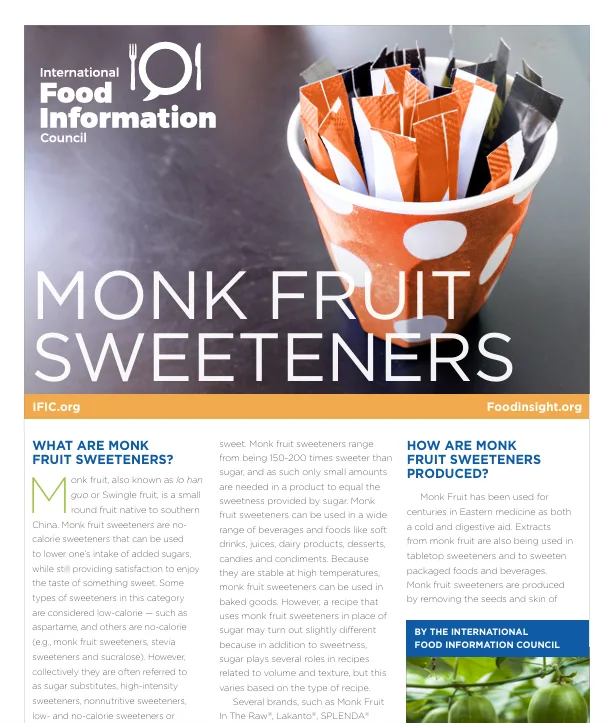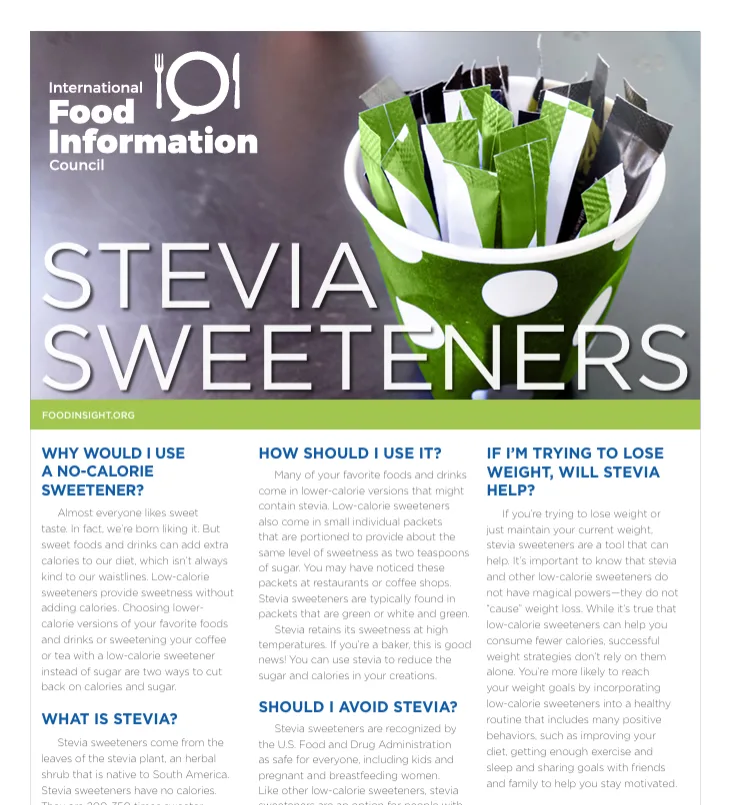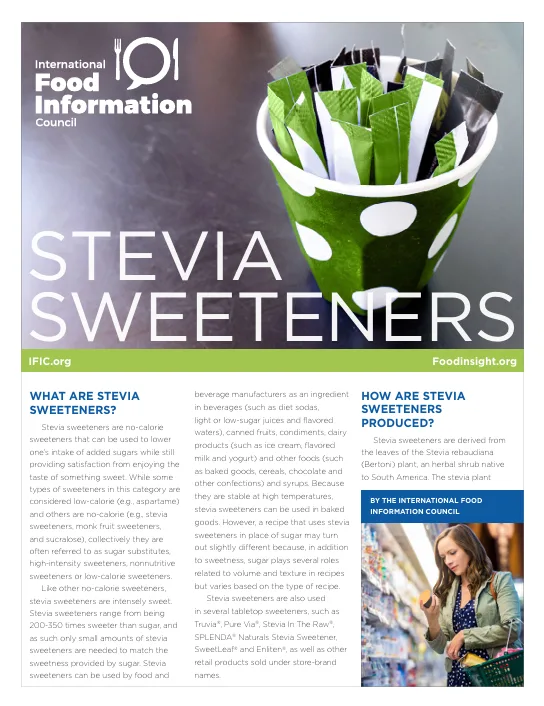
Sweeteners

Quick Links

Key Messages
Use these science-backed key messages to confidently answer questions and guide conversations about sweeteners.
- What are low- and no-calorie sweeteners? Low- and no-calorie sweeteners (LNCS) are sugar substitutes that provide the sweet taste of sugar with few or no calories. Common LNCS include sucralose, stevia and monk fruit. They are non-nutritive and do not spike blood sugar, so these low carb sweeteners and low glycemic sweeteners are frequently used in diets to help manage blood sugar and reduce calorie intake.[1]
- What are sugar alcohols? Sugar alcohols – such as erythritol, xylitol and sorbitol – are a type of nutritive sweetener that offer fewer calories than sugar. While they do contain some carbohydrates, many sugar alcohols have a minimal impact on blood sugar levels, especially when consumed in moderate amounts. This makes them a useful option for people seeking low glycemic sweetener alternatives to traditional sugar.[2]
Research
Catch up on the latest shifts in consumer behavior around sweeteners – from habits and health motivations to knowledge gaps – to help guide meaningful conversations and education.
2025 IFIC Food & Health Survey: The Full Report
Learn More2025 IFIC Food & Health Survey: A Focus On Sugars & Sweeteners
Learn MoreIFIC Spotlight Survey: Americans’ Perceptions Of Added Sugars & Sweeteners
Learn MoreIFIC Spotlight Survey: Americans’ Perceptions Of Sweetness In Their Diets
Learn MoreIFIC Spotlight Survey: Americans’ Perceptions Of Sweeteners In Foods & Beverages
Learn MoreIFIC Spotlight Survey: Perceptions & Use Of Dietary Sweeteners
Learn MoreResources
Over the years, IFIC has tracked consumer attitudes, behaviors and perceptions about low- and no-calorie sweeteners. Explore our resources on the landscape, opportunities and challenges.
Webinars
Sharpen your science communication skills with CPE-eligible IFIC Expert Webinars. All feature expert-backed strategies for translating nutrition and health science clearly and confidently.
Downloads to Share
Find ready-to-use resources to help support your science communication. These fact sheets and one-pagers make it easier to share credible, science-based information on food and health.
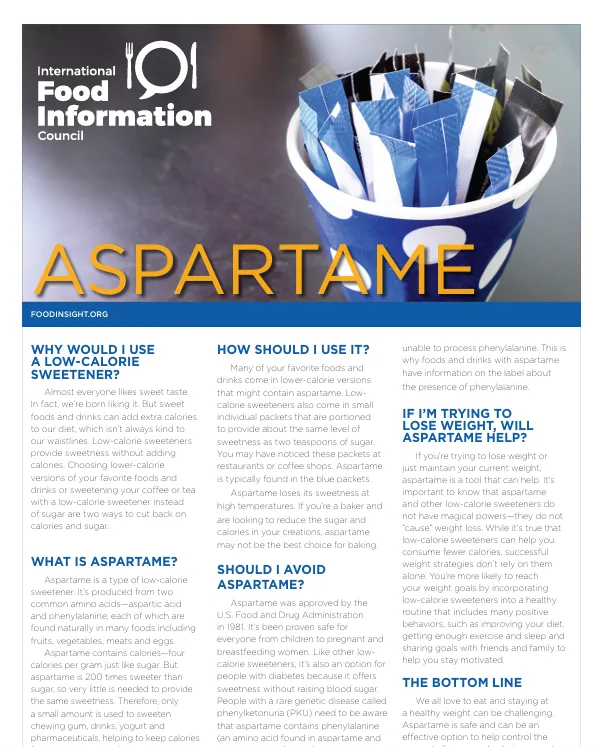
Aspartame Fact Sheet – Consumers
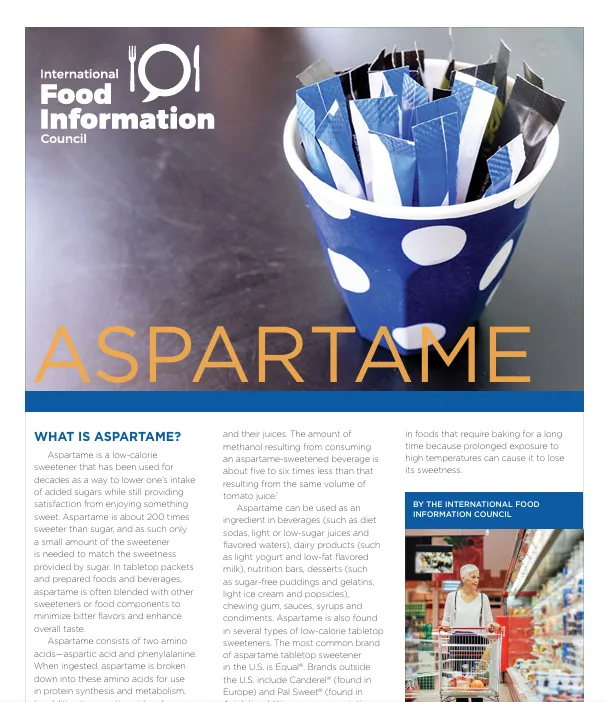
Aspartame Fact Sheet – Health Professionals
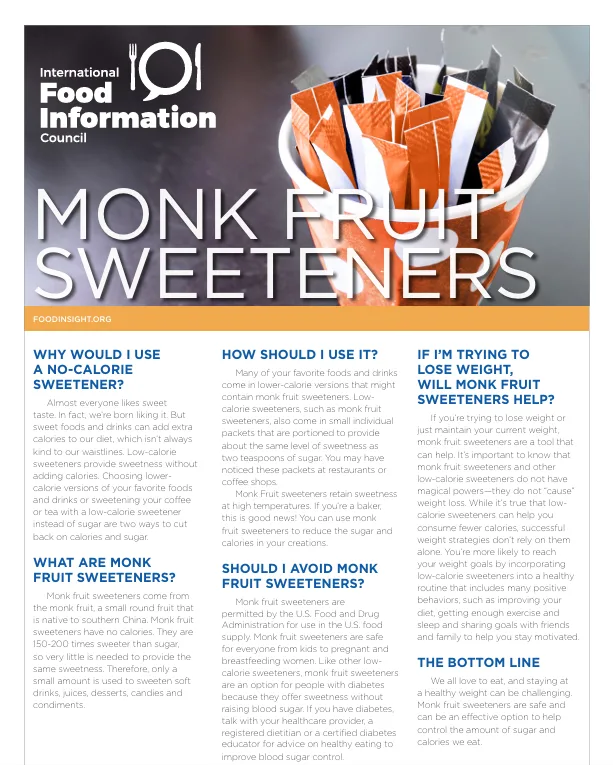
Monk Fruit Fact Sheet – Consumers
In the News
The sweetener debate continues to gain attention. Check out recent media stories where IFIC experts help separate science from speculation on sugar alternatives.
- Everyday Heatlh Can Artificial Sweeteners Help With Weight Loss?
- Sound Bites Podcast Consumer Insights: What’s the Scoop on Snacking, Sodium u0026amp; Sweeteners? – Milton Stokes








